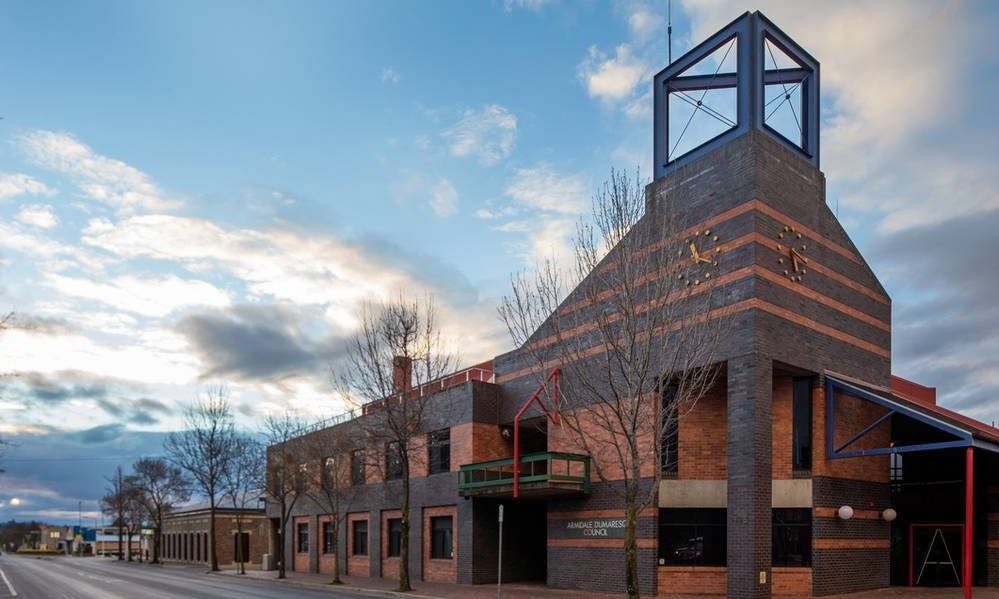Armidale Regional Council has ignored widespread community opposition and criticism of the consultation process and voted to support the proposed 50% (58.8% cumulative) increase to rates through a special rate variation (SRV).
The proposal was widely criticised by the community, both through the formal consultation processes and on social media. Most comments argued that residents should not be paying for the past failures and poor management of Council, the change was too much, and that rates are already too high in comparison with other areas. 66% of those who responded to the survey opposed the rate increase. The Armidale Regional Ratepayers Association made a submission arguing that the increase was not justifiable and arguing that there was room to improve in Council’s budget.
Deputy Mayor Todd Redwood, who moved the motion, described the move as “potentially unpopular with some people”. Cr Paul Gaddes, who seconded the motion, acknowledged the widespread comments and criticism, but argued that it did not matter what people’s views were because Council “did not currently… have the financial depth to maintain assets”.
Cr Debbie O’Brien acknowledged that people were feeling the pinch of higher costs but said those higher costs are affecting Council as well. She reassured the community that this vote was only the first step of the process, and that she would not support this motion if they did not also ‘revisit’ the hardship supports to look after people in the community who cannot afford it.
Cr Brad Widders said this was a big decision, and that was reflected in the level of community consultation undertaken. He also pointed to the fact that the infrastructure backlog was not new, and was ignored by previous councils. Acknowledging that it was an unpopular decision that may cost councillors their positions, he said “it needs to be done”, and echoed that those in financial hardship would be supported, but that it would result in better services.
Cr Susan McMichael blamed the burden put on council by State and Federal governments who keep giving Council assets to manage but not the funds to manage them, arguing it has not been fair or sustainable for years.
Cr Dorothy Robinson acknowledged that more than half of all respondents to the survey said they did not want the increase, and would prefer ‘managed decline’ of assets, reduced spending on tourism, and other reduced expenditure. She then backflipped on her commitment from the June meeting to decide based on the community feedback and said she would defer to make a decision until they determine if they get more funding.
Cr Margaret O’Connor said she does support an SRV but believes the permanent 58% variation is not required. She pointed to the capacity to pay study which found only the wealthy areas of South Hill had the capacity to pay the proposed increase, but said she had no confidence in the report given the claims for ability to pay was linked to a 23% increase in house prices, saying “you cannot eat your house”. She said the proposal would mean that Armidale has the highest rates in the state and that people will leave the area. She also emphasised that the increase would not improve services, only maintain current services.
Cr Paul Packham moved a motion to make the variation temporary for three years rather than a permanent increase, arguing that the funding modelling was flawed. He was not convinced that all the feedback was captured, and also argued that there is no undertaking to improve services. He argued that by making it a temporary variation this Council would have a level of agility to deal with current problems, and it would give Council the ability to build trust with ratepayers. The motion was seconded by Cr O’Connor who said the affordability has not been proven, and supported by Cr Robinson and Cr Widders. Mayor Coupland, Deputy Mayor Redwood and Galletly spoke against the amendment, and the amendment was defeated 4-7.
The next step for the special rate variation is consideration by the Independent Pricing and Regulatory Tribunal (IPART) in February 2023. The variation must be approved by IPART before rates can be increased.


